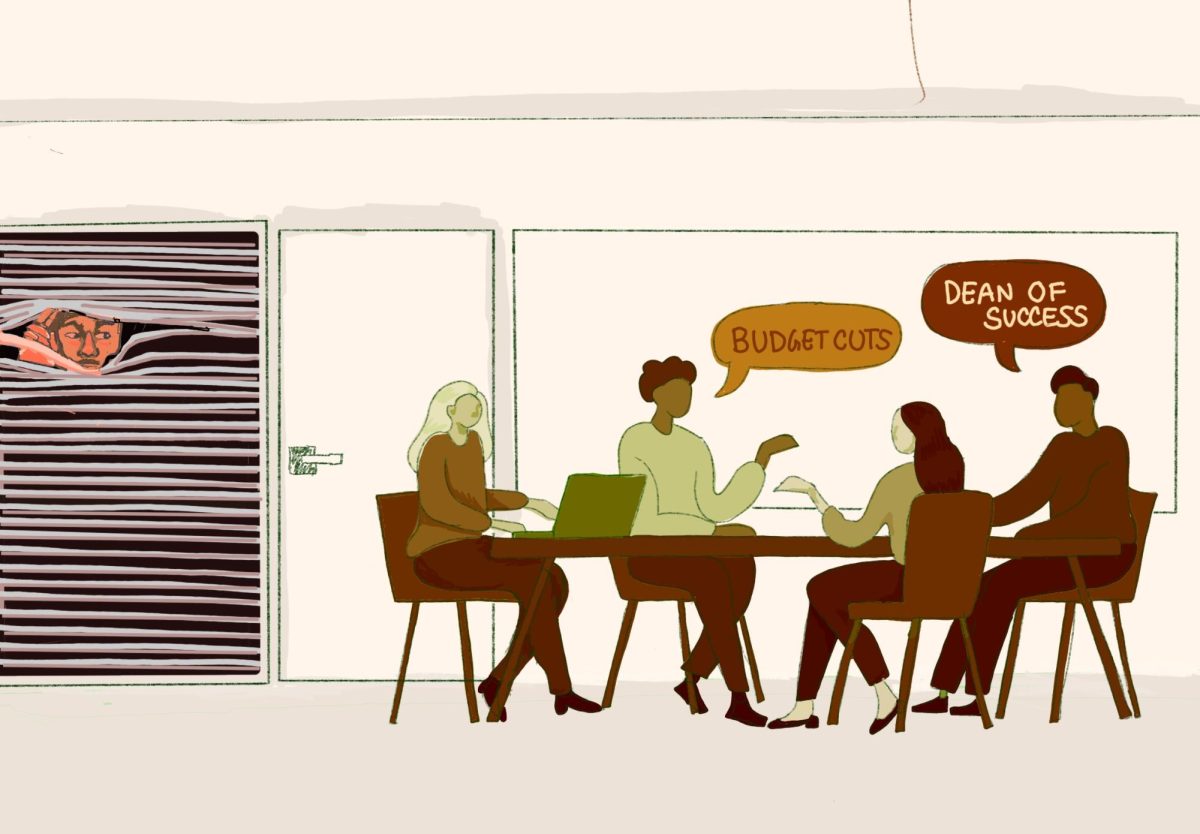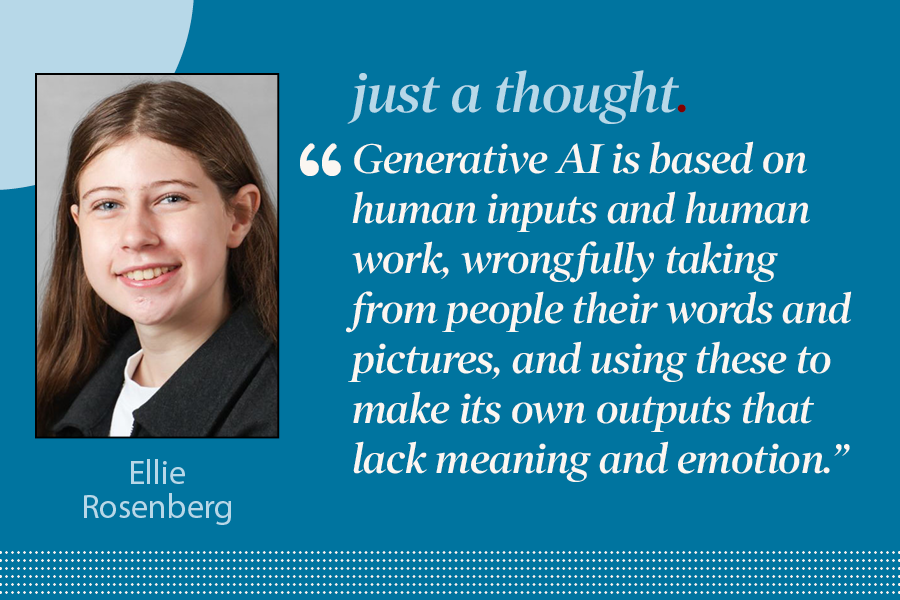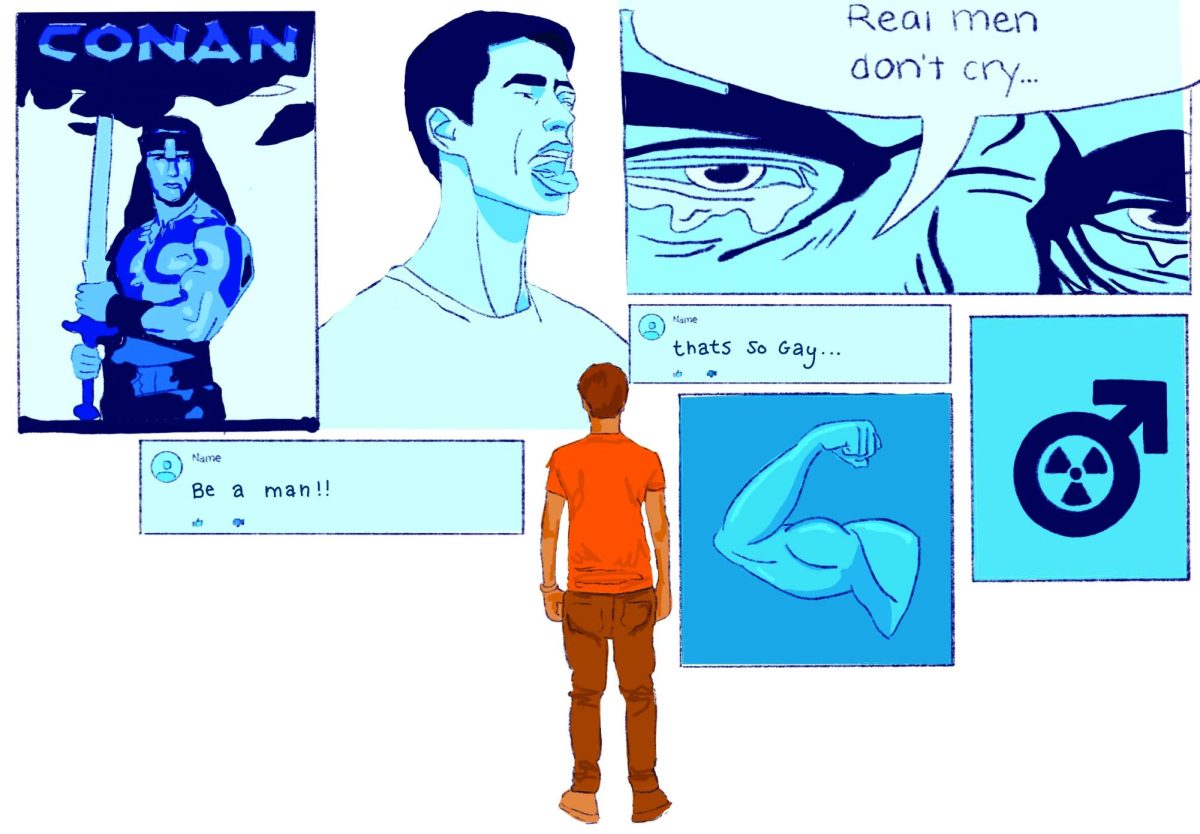The good news is hell is just the product of a morbid human imagination. The bad news is whatever humans can imagine, they can usually create,” said Harmony Cobel in the opening episode of the show “Severance” streaming on Apple TV+.
Ms. Cobel is a manager at the fictional company Lumon, which takes its best shot at hell on earth in what is called the Severed Floor. Those who work on the floor undergo a procedure called severance, where their memories are “specially dictated.” When the employees are on the Severed Floor, they know nothing about their lives on the outside world. When they leave the office, they know nothing about their work.
“Severance” falls under the category of “prestige television,” marked by its high production quality, narrative depth and inclusion of complex characters. This is where “Severance” thrives — alongside shows such as “The White Lotus,” “Breaking Bad” and “Succession” — in the space between sharp comedy and gut-wrenching drama, the personal and the political.
“Severance” focuses on Mark, who joined Lumon after the death of his wife, Gemma. Because of severance, he no longer has to remember his pain for eight hours a day. He works with three other severed individuals, but when his best friend doesn’t show up one day, his work starts to derail.
Though it is categorized as an office comedy, the show transforms into something with more of a gut punch — a commentary on love, grief and the ways we try to detach ourselves from society. Another strength of Severance is its ability to weave in social commentary about themes beyond the office, such as the promise of happiness promised by religion and capitalism. Each viewer may experience these themes differently.
Prestige television introduces depth and complex themes in a uniquely beautiful way, from the cinematography to the dialogue. These themes challenge us to view ourselves and the power structures that surround us differently. The same can be said for film, of course, but prestige TV has a special ability to tell a story over 8 to 10 episodes rather than a movie’s single sitting.
Take “Breaking Bad” for example. In its five-season run, the show received 248 award nominations and 92 wins. It is one of the most streamed shows of all time and remains in the vein of pop culture, despite ending over 10 years ago. Its central plot — a high school chemistry teacher working with a former student to cook crystal meth — is shocking and humorous at times. Nonetheless, the very reason the famed Walter White begins to pursue a treacherous path of crime is to afford health care after a terminal lung cancer diagnosis, a very real social issue.
A more recent show, HBO’s “Succession,” follows a similar pattern. The dramedy, which ended its four-season run in 2024, received 250 award nominations and secured 92 wins. Its plot revolves around the Roy family, who owns the fictional media empire Waystar Royco (loosely based on the media tycoon Murdoch family). At the heart of the show is a vicious battle for company control, but at its heart it offers a Shakespearean commentary on generational trauma and narcissistic family structures.
These shows are not always heartwrenching. A more lighthearted example, “The White Lotus,”
slowly and satirically dissects the privilege of the wealthy with a little murder mystery mixed in. Each season takes place at a new White Lotus resort, a fictional luxury hotel that attracts a range of peculiar guests, from movie stars to (very) dysfunctional families. Though the show is notably less tragic than the others, its brilliant cinematography and intricate plot makes it similarly appealing.
For a teenage audience, the drama and sophistication of these shows makes them as alluring as they are captivating, keeping the viewer tuned in from start to finish. As a genre, these shows are captivating, thought-provoking, and always worth a watch and a debrief.






















































